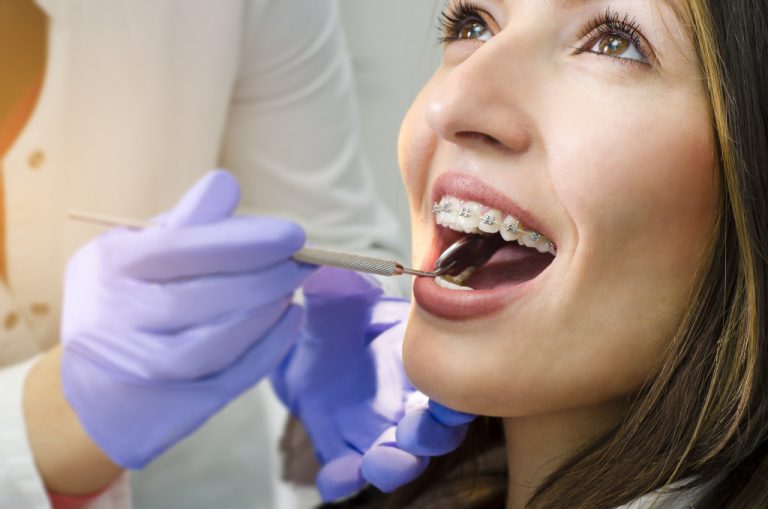- Introduce your family to the bass brushing technique, flossing with a dental pick, modified stillman brushing technique or water flossing.
- Encourage a well-balanced diet and adequate hydration throughout the day.
- Schedule regular dental check-ups and keep dental records up-to-date.
- Use custom-fitted mouthguards to protect teeth during physical activities.
- Provide positive reinforcement and educational resources for good oral hygiene practices.
Taking care of your family’s dental health is vital to overall well-being. A healthy smile enhances confidence and contributes to better digestion and overall health. To ensure that your family enjoys optimal dental health, it’s essential to establish good oral hygiene habits early and maintain them consistently. In this guide, you’ll discover five essential tips to help you safeguard the dental health of your loved ones. Following these guidelines ensures that your family’s smiles remain bright and healthy for years.
1. Brushing and Flossing Techniques
Proper brushing and flossing techniques are the cornerstone of good dental health. Teach your family members the importance of brushing their teeth at least twice daily and flossing daily.
Here are techniques that you can use for brushing and flossing:
The Bass Brushing Technique
The Bass Brushing Technique is a method developed to enhance plaque removal around the gum line. Hold your toothbrush at a 45-degree angle to the gums. Move the brush in small, gentle, circular motions, focusing on where your teeth and gums meet. This technique is particularly useful for people with gingivitis or periodontitis, as it targets the areas where plaque accumulates.
Flossing with a Dental Pick
Dental or floss picks are handy tools, especially for children or people with limited dexterity. Gently hold the pick and smoothly guide the floss amidst your teeth, employing a gentle sawing motion. Curve the floss around each tooth, going below the gum line. If done correctly, this technique can be as effective as traditional flossing.
The Modified Stillman Brushing Technique
The Modified Stillman Brushing Technique involves placing the toothbrush at a 45-degree angle to the gum line and employing a gentle back-and-forth motion. This technique aims to clean the teeth and stimulate the gums, making it beneficial for individuals with receding gums or periodontal disease.
Water Flossing
Water flossing also referred to as oral irrigation, involves using a handheld device that emits pulsating streams of water. The water pressure effectively removes plaque, food particles, and bacteria from between teeth and below the gum line. It’s an excellent alternative for those who find traditional flossing challenging or uncomfortable.
2. Balanced Diet and Hydration

Maintaining a well-balanced diet is crucial for optimal dental health. Reduce the consumption of sugary snacks and beverages, as they can contribute to tooth decay and cavities. Instead, encourage your family to consume a diet rich in fruits, vegetables, lean proteins, and whole grains. These foods provide essential nutrients like calcium, which strengthens teeth and gums.
Hydration is essential for dental health as well. Water plays a crucial role in cleansing the mouth, effectively rinsing away food particles and counteracting harmful acids. Encourage your family to drink plenty of water throughout the day, especially after consuming acidic or sugary foods. Reducing the consumption of sugary and acidic beverages like soda and fruit juices can significantly benefit your family’s dental health.
3. Visit a Dental Clinic Regularly
Regular visits to a reputable dental clinic are crucial for maintaining optimal dental health. Schedule dental check-ups for your family members every six months. During these appointments, the dentist can detect and address dental issues early, preventing them from becoming more severe and costly. Professional cleanings remove plaque and tartar buildup, reducing the risk of gum disease and cavities.
These visits can be educational and help children establish a positive relationship with the dentist. Ensure that your family’s dental records are up-to-date and that you inform the dentist of any changes in your family’s medical history or oral health concerns. By making dental check-ups a routine part of your family’s healthcare, you can ensure their smiles remain healthy and problem-free.
4. Mouthguards for Sports and Teeth Grinding

Protecting your family’s teeth during physical activities is essential. If any family members are involved in sports, consider custom-fitted mouthguards to shield their teeth from potential injuries. Mouthguards are especially crucial for contact sports like football or basketball. A properly fitted mouthguard can help prevent broken teeth, cuts to the lips, and even concussions.
Additionally, teeth grinding, or bruxism, is a common issue that can lead to dental problems such as cracked teeth and jaw pain. If anyone in your family grinds their teeth at night, consult a dentist about custom-made nightguards. These devices protect teeth from the damaging effects of grinding and ensure a better night’s sleep for everyone involved.
5. Oral Health Education and Positive Reinforcement
Educating your family about oral health and instilling good habits is essential for long-term dental well-being. Make oral hygiene a family affair by brushing and flossing together. This reinforces the importance of these habits and creates a bonding experience.
Offer positive reinforcement and praise for good oral hygiene practices, especially for children. Consider implementing a reward system to motivate younger family members to care for their teeth consistently. Use age-appropriate educational resources, such as books and videos, to teach your family about the importance of oral health and the consequences of neglecting it.
In Summary
Ensuring optimal dental health for your family is a responsibility that pays off through beautiful smiles and overall well-being. By focusing on proper brushing and flossing techniques, maintaining a balanced diet, scheduling regular dental check-ups, using protective measures like mouthguards, and promoting oral health education, you can help your family maintain healthy and radiant smiles for years. Remember, the key to success is consistency, so make these practices a routine part of your family’s daily life, and watch as their dental health flourishes.











